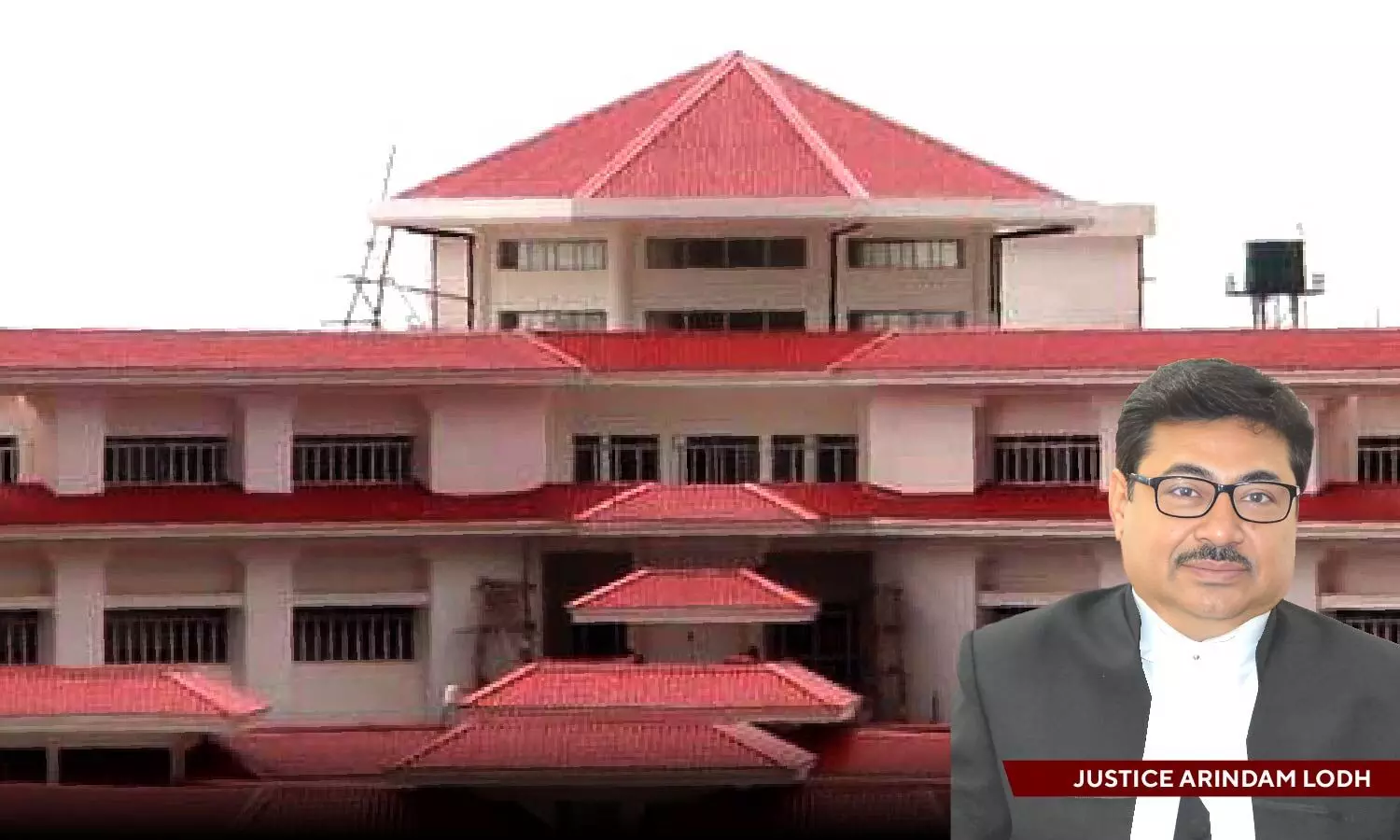
Finding Of Quasi-Judicial Authority Is Not Binding On Civil Court Regarding Title And Possession Of A Party: Tripura High Court Reiterates
 |
|The Tripura High Court, Agartala Bench, reiterated that any finding arrived at by a quasi-judicial authority like the Executive Magistrate regarding a party's title and possession will not be binding upon a Civil Court.
The Court dismissed an Appeal challenging the Judgment and decree of the Trial Court and the First Appellate Court, which directed the Appellants to hand over the possession of disputed land to the Respondents.
Justice Arindam Lodh observed, “The answer perhaps is in negative. The object of Section 145 of CrPC is to prevent breach of peace as regards the disputes arising out of a land or water. The proceeding under Section 145 CrPC will not decide the title of a person over a land or water. Any finding arrived at by a quasi judicial authority like the Executive Magistrate as regards the title and possession of a party will not be a binding upon a Civil Court. Rather, the findings and decision of the Civil Court has the binding effect over right, title and interest as well as the possession of a party over a suit land”.
Senior Advocate D.R Chowdhury appeared for the Appellants/Defendants, and Senior Advocate P. Roy Barman appeared for the Respondent/Plaintiff.
The Plaintiff’s Father was the owner of the disputed land, and after his death, the plaintiff and his mother applied for mutation of the land in their names. A joint record of rights was prepared in their names. However, the Plaintiff discovered that the defendants had encroached on the land, denied his rights, and constructed a small mud hut there. The Plaintiff approached the Court seeking a declaration of his title and recovery of possession, which was allowed.
The Appellants (Defendants in the original suit) filed a second appeal under Section 100 of the Civil Procedure Code, 1908 (CPC,) challenging the Judgment and Decree passed by the Trial Court, which was upheld and affirmed by the First Appellate Court.
The issue dealt with by the Court was:
“Whether the order passed in a proceeding under Section 145 of CrPC would have a binding effect on deciding a civil suit by a Civil Court?”.
The Court reiterated that the purpose of Section 145 of the Criminal Procedure Code (CrPC) is to prevent breaches of peace that may arise from disputes related to land or water. However, a proceeding under Section 145 will not determine a person's title to land or water. The Court noted that the decisions made by quasi-judicial authorities like the Executive Magistrate regarding a party's title and possession would not be binding on a Civil Court. The Civil Court has the ultimate authority over the right, title, interest, and possession of a party concerning the disputed land.
Furthermore, the Court observed that a suit based on title under Article 64 of the Limitation Act must be filed within 12 years from the date of dispossession. Since the suit was instituted in 2014, it is within the limitation period, despite the cause of action arising five years earlier.
“The situation can be looked into in another way also. The argument advanced by learned senior counsel appearing on behalf of the appellants/defendants are that the cause of action in instituting the instant suit arose in the year 2009 when the respondent/plaintiff had filed an application under Section 145 of CrPC raising the disputes between the possession/occupation of the suit land. Even if this argument is accepted by this Court, then, also the period of limitation to institute the present suit is within the period of limitation as contemplated under Article 64 of the Limitation Act. A suit based on title under Article 64 of the Limitation Act has to be filed/instituted within a period of 12 years from the date of dispossession”, the Court noted.
Additionally, the Court emphasized that under Order VII, Rule 11 of the CPC, the Court can reject a plaintiff's claim if the suit is barred by the law of limitation, as evident from the plaint.
The Court, while referring to the Supreme Court Judgment in the case of Shakti Bhog Food Industries Limited v Central Bank of India & Anr. [(2020) 17 SCC 260] held that the suit was filed with a definite cause of action.
The Court noted that the court had found that the title deeds executed in favor of the Appellants did not match the plot numbers mentioned in the plaint schedule. The Court observed that the boundary of the land must prevail over the plot and khatian numbers as per the settled proposition of law. The Court held that the Appellants did not make any effort to trace out the exact land they wanted to identify and therefore, interference was not required.
Accordingly, the Court dismissed the Appeal and upheld the impugned order.
Cause Title: Nakul Chandra Das v Sri Chanmohan Saha